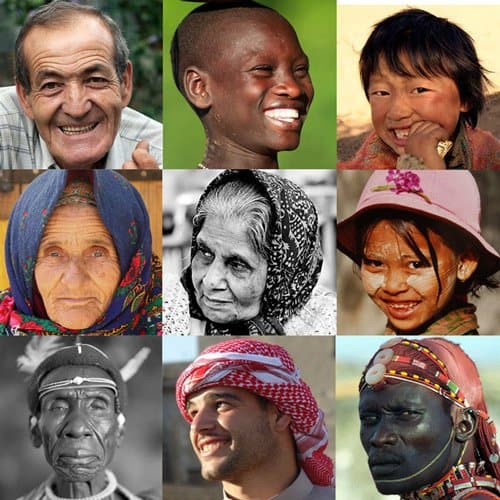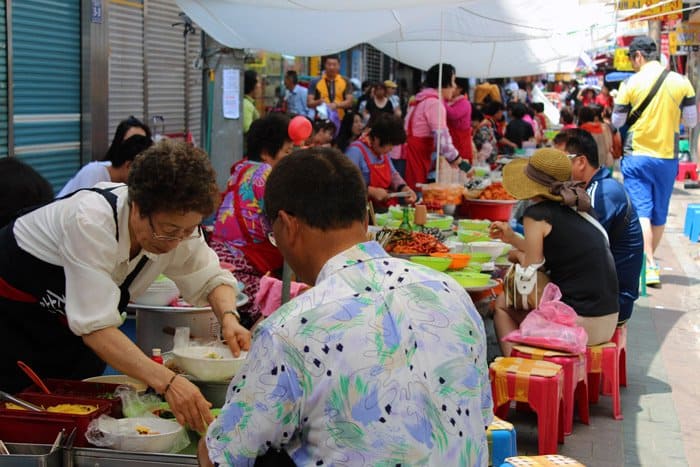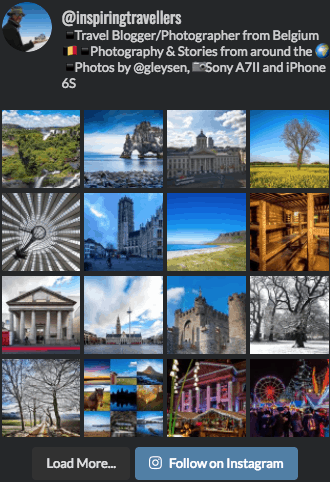Did you know that there’s a very simple way for you to get so much more out of your travel experiences? In today’s guest post, Sam Gendreau of Lingholic is going to explain it to you and tell you just how easy and fun it is to get started!
If I told you that you could incredibly enrich your travel experiences by following this one tip, would you believe me? And if I told you that by doing so you could broaden your horizons, meet fantastic people, be presented with opportunities you’d never dreamed of, and perhaps even discover a new found passion for yourself, would it sound too good to be true?
Today, what I’m proposing to you is to begin a fantastic journey, one that I’ve begun over six years ago and that has fundamentally changed my life. It’s a journey worth traveling for its own sake, without any precise destination. Just a lot of roads branching off here and then, bringing you to novel places where fascinating people are bound to be met. Just like any good traveler enjoys the trip itself and not the destination, the same applies to this mind-opening adventure I’m proposing you to begin today. This journey is that of learning foreign languages.
Learning a Foreign Language?
To many people, learning a foreign language is something unthinkable, way beyond their ability, or simply too boring (or all three). It’s something that requires years of painful effort, expensive books and classes, and above-average intelligence. And many would add, along with many other excuses, that learning a foreign language has no obvious, direct benefit since “everybody speaks English anyway.” This couldn’t be further from the truth.
Learning a language can be fun, affordable and accessible to anybody of any age. The best of all is that it doesn’t necessarily require any significant investment of time (you can study as little as you want every day), and you do not need to have any particular “talent” to do it. If you’ve had a bad experience at school learning a foreign language and it discouraged you, you’re not alone.
Susanna Zaraysky, a world traveler, polyglot, author, and filmmaker, was told by her teacher in high school that she wasn’t talented with languages and that she should probably look for another subject to focus her efforts on. She now speaks nine languages and has traveled to over 50 countries. Benny Lewis (fluentin3months.com), another globe trotter and blogger strongly against the idea of “innate talent” in foreign languages, was an engineer who only spoke English 10 years ago. He held the firm belief he had no “talent” whatsoever with foreign languages. He now speaks over 10 languages and has traveled to dozens of countries all over the world.
The point is, anybody can learn a language; do not fool yourself into believing the contrary. Best of all, you can learn as little or as much of it as you want. Yes, reaching native-like fluency might take many years of study and practice, but reaching conversational level can take as little as a few months (or even weeks, depending on your experience and approach!). Even learning a few greetings and basic phrases will go a long way in making the locals appreciate the effort you’ve put in, and they will be much more open and receptive. Believe me, speaking even a modicum of the local language will make all the difference between a nice trip and potentially the trip of a lifetime.
So How Can I Do It?
By now you might be somewhat intrigued, if not incredulous. Affordable? Little investment of time? Accessible to anybody? “Is this guy drunk?” you might be asking. The truth is that anybody can learn a language on their own, without taking expensive classes and without having to go through boring grammar drills and manufactured, fake-sounding conversations. There are literally hundreds of very good books and audio methods that do a great job at teaching you anywhere from the basics to the advanced workings of a language. As if this weren’t enough, with the advancement of technology and the internet, you can access millions of amazing resources online for absolutely free (or at very low cost), such as blogs, dictionaries, apps, movies, music, and much more.
While being spoiled with choice can be a good thing, it can also be very confusing, because you might simply not know where to start. Through my own experience, and the experience of several distinguished polyglots I’ve interviewed over the past year, I’ve found that a few methods of exceptional quality are consistently used by experienced language learners (including me). No matter which method you choose though, at the end of the day it’s all about passion and consistency. A little bit of study/practice every day (~30mn) will go a long way in making you conversationally functional after two to three months.

Strapped for time? Look for an audio-only method or podcasts; you’ll be able to listen to them on your way to school/work, or while walking, shopping, doing the dishes, or taking the plane! That’s part of the reason I say learning a language doesn’t necessarily require any significant investment of time: you can do it during so-called “transition” or “dead” time, that is, when you’re commuting or doing nothing much besides staring into the air.
Now what?
Now that you’ve spent time and effort learning some bits and pieces of the language spoken in your future travel destination, what’s the next step? You’ll be facing two challenges from now on: the need to actually practice speaking your newly-acquired language with an actual human being, and the associated initial fear of expressing yourself in that foreign language.
Simply put, you can’t get better at speaking a foreign language unless you actually speak it. Speaking is a skill, whereas such a thing as grammar is knowledge. Just like a person wanting to get better at driving wouldn’t spend his days reading books about it, you’ll want to work on developing your active skills. As stated above, with technology nowadays it’s incredibly easy to learn and practice foreign languages from the comfort of your home, and there are many sites and programs that can help you do exactly that.
If you’re looking at getting a language exchange partner (entirely for free) or a private tutor (usually for very reasonable hourly rates, done over Skype), I would highly recommend checking out one of the multitudes of website offering such services, such as Italki, Livemocha, Busuu, and Verbling. For more info on how to learn and practice a language on the internet, take a look at an article that was published on my site.
You might be reluctant to do so, though. We all are, to some extent, especially when it’s the first time we learn a foreign language. Just keep in mind that absolutely nothing bad will come out of speaking in a foreign language, no matter how bad your skills are. Very rare are those who will laugh at your mistakes. The overwhelming majority of people will welcome you with open arms and will feel truly appreciative to see that you’ve put the effort to learn a bit of their language and understand their culture.
If I can allow myself to give an additional tip, I would say: open your mouth right from day one. Don’t wait months until you begin practicing your target language. Just speak it out loud to yourself (when reading and practicing dialogues) and find a language exchange partner or a tutor as soon as possible. It’s part of the fun. It will get you up to speed with the culture associated with the language, and it’ll release some of your inhibitions that will initially keep you from speaking it.

I cannot emphasize this enough: learning a foreign language, even as little as a handful of phrases, will make your travel experiences so much better. Knowing how to speak a second (or a third, fourth…) language is a gift. Not only will this make you feel more welcome from the locals, it might bring you opportunities that you’d never thought could befall to you, and it will enrich your life by offering you a deeper understanding of the culture and history of the people you’ll encounter.
Travel is not just about taking pretty pictures and posting them on Facebook or Instagram. It’s about building unforgettable memories, meeting people with vastly different life experiences and mindsets, and opening your mind to ultimately make you a better person.
What do you think? Are you convinced that learning a language can really add to your travels? Do you have particular stories you’d like to share? I’d love to hear from you, so don’t hesitate to comment below.
Bio: Sam Gendreau is a passionate language learner and traveler, and the founder of www.lingholic.com, a blog that helps language learners acquire foreign languages as smoothly, quickly, and effortlessly as possible. He has lived and traveled in Oceania, Southeast and East Asia, and across North America, and he has learned French, English, Spanish, Korean, Portuguese, and Mandarin Chinese to varying degrees of fluency. You can find him on Facebook or Twitter and share your thoughts!


